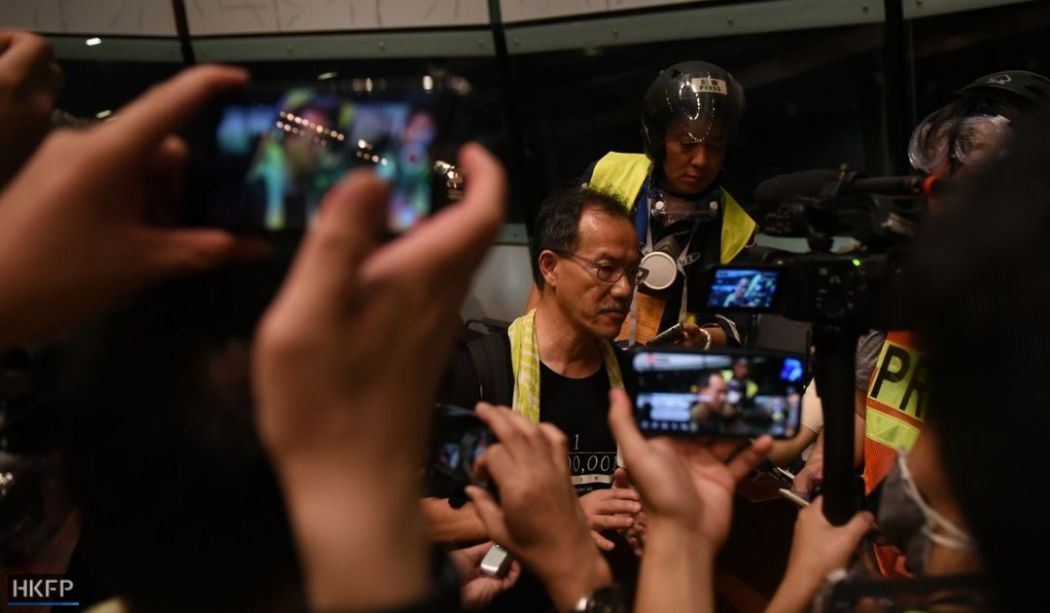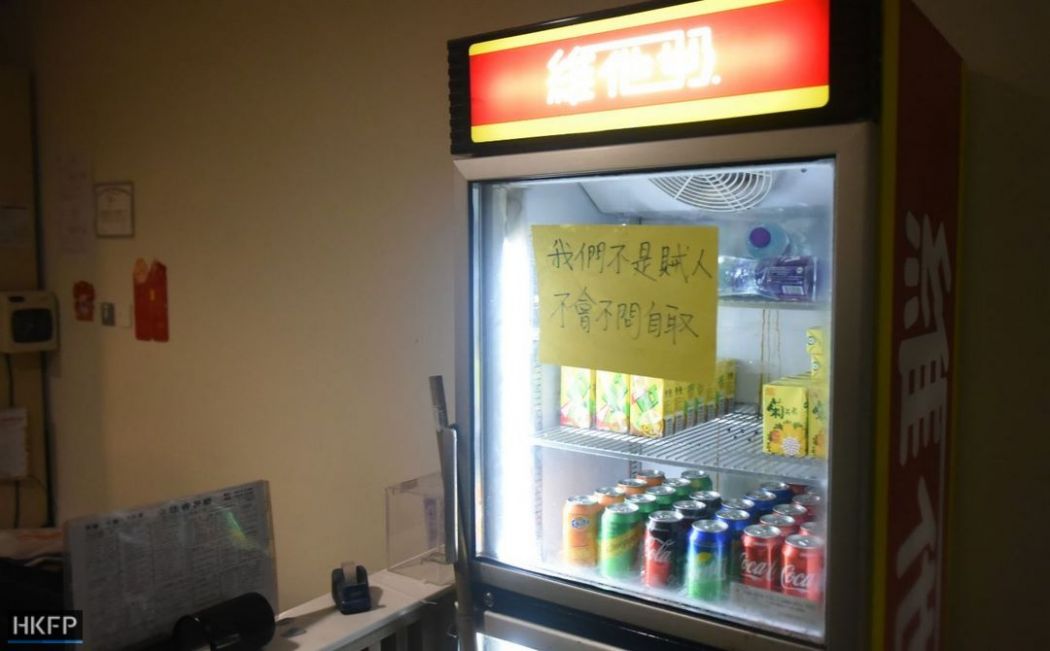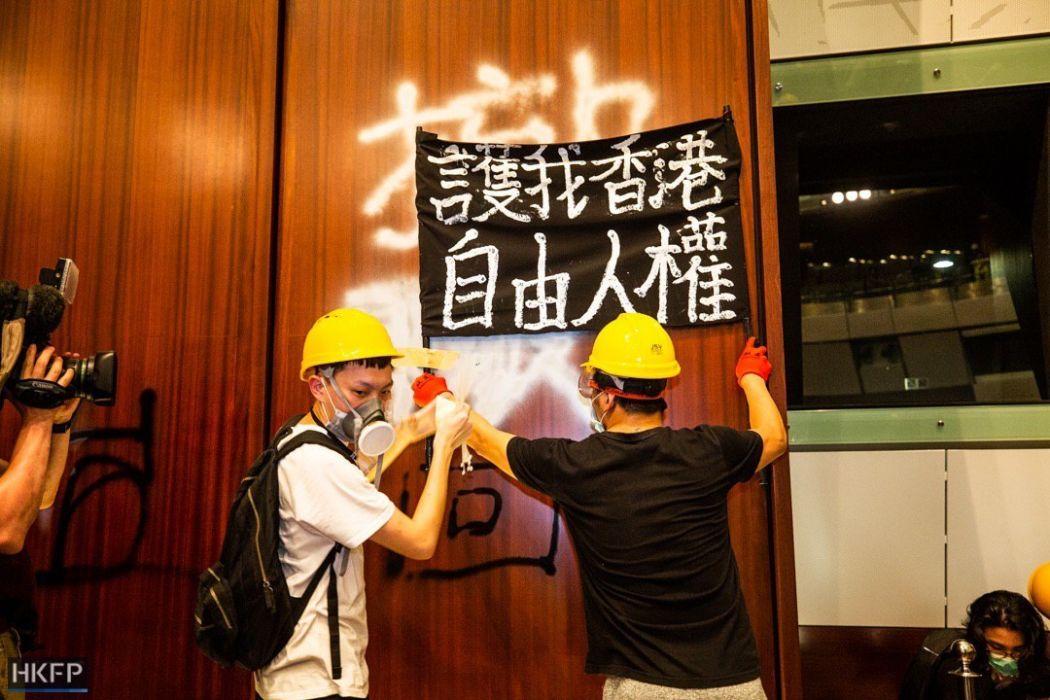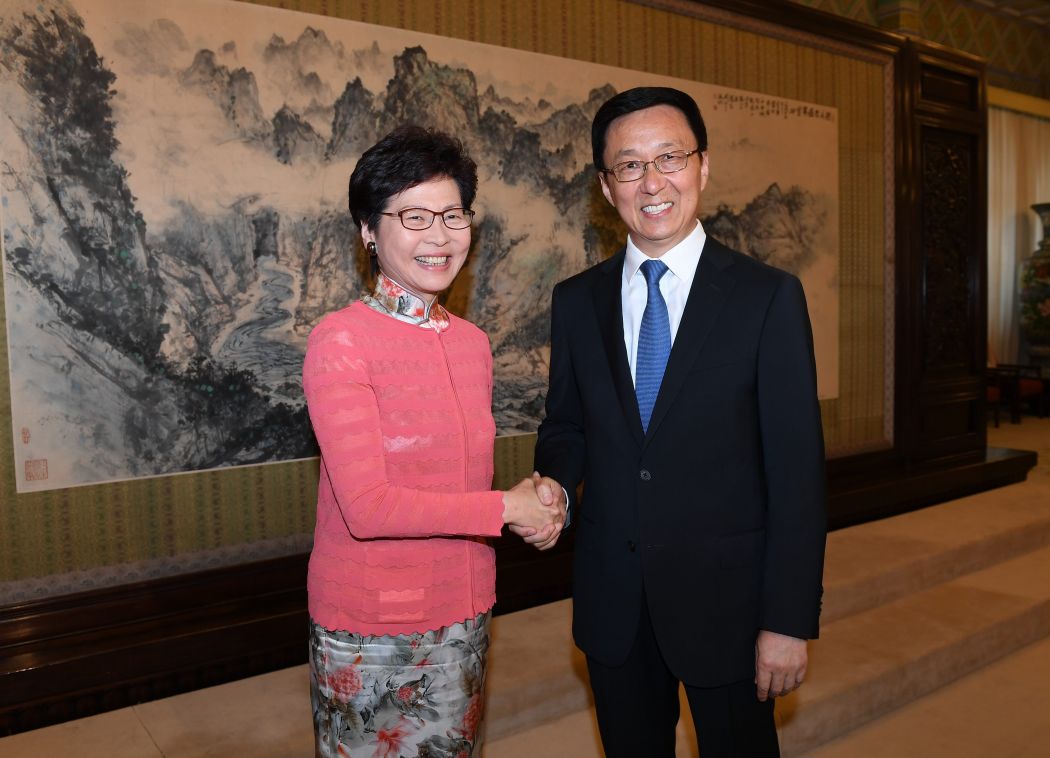Something really does not smell right here. In a city where lies have taken centre stage in the official lexicon, there are more questions than answers over the explanations for events on July 1 when a small group of protesters invaded the Legislative Council (LegCo) and vandalised parts of the building.
Pro-democracy lawmaker Fernando Cheung was quick to describe what happened as protesters falling into a trap laid by the police. The demonstrators themselves are hardly likely to admit that they were gullible enough to have played into police hands. The wider pro-democratic camp has chosen to ignore this assertion, while government officials, not unexpectedly, have denied it. Yet they have seized on the sacking of LegCo to portray the massive protests against the extradition laws as being essentially a threat to law and order. This narrative now dominates the official Chinese media portrayal of what’s happening in Hong Kong, so it’s hardly surprising that the local echo chamber has been taking note.

But what are the facts? Some are clearer than others. What is clear is that as evening descended, riot police started to withdraw from around the LegCo Complex. They did so without pressure from protesters.
Meanwhile, outside the LegCo entrance, protesters faced no physical police intervention as, over at least eight hours, they made attempts to batter down a glass entrance. They eventually succeeded.
When they entered the building, they discovered that the police who had been inside earlier had entirely disappeared.
The decision to assault the legislature was made through a process of messaging and spontaneous meetings. There was no “leader” leading the way although, inevitably, some individuals had stronger voices than others. Crucially, particularly when it came to online dialogue, most participants were not aware of who was talking to who. The possibility of agent provocateurs being at work cannot be discounted.
Despite self-righteous clucking by the pro-government camps to denounce the violence, the only people who actually tried to prevent the sacking of the legislature were pro-democracy legislators, such as Leung Yiu-chung and Roy Kwong, who were knocked aside by the protesters intent on violence. Their heroism has received an insufficient acknowledgement.
The violence was not “mindless” in as much as targets for defacement were carefully selected and those taking part were firmly warned not to steal anything.

This brings us to other things we, at least for the time being, do not know. First up is the question of whether the police deliberately or by virtue of cock up allowed this to happen. The first explanation has achieved growing credibility in light of explanations given by Police Commissioner Stephen Lo. They are laughably implausible, right up there with the explanation of why riot police had no space on their uniforms for identification numbers.
So, here’s what the police have been saying: there was a danger of the electricity being shut off, meaning that the police would be operating in the dark and there was a danger of police officers being affected by unidentified white smoke and or dangerous substances being thrown at them.
However, the explanation does not make any sense because we know that the force is equipped with powerful mobile lighting systems and officers were equipped with special protective clothing for precisely these risks and were also issued with sophisticated breathing apparatus. More generally, Lo alleged that the confined space inside the legislature meant that force could not be deployed. But why were police inside before but not when the break-in occurred?
The aftermath is easier to assess precisely because it is there for all to see as defenders of the government now only want to talk about violence. It’s as if the millions of people who peacefully went out on the streets hardly matter.
And this brings us to a bigger question: do the actions of a very small minority of protesters undermine the majority? Indeed, is this a betrayal of unprecedented protests that have a brought a quarter of the entire population out on the streets?

It can easily be argued that the desire for violent and continued action is little more than self-indulgence and or stupidity.
Alternatively, and equally plausible, it can be argued that the government is to blame for intransigence that builds frustration and anger which leads to extreme action.
The truth probably lies somewhere sandwiched between these two points of view but there is another factor to consider. While the bigger protests have recognisable organisers, many of whom are veterans, the minority faction of the protest movement is leaderless and dependent on ad hoc initiatives. This can be extremely effective and is attractive to those who are suspicious of leaders and are wary of personalities who can be characterised as aiming for personal glory.
However the blunt reality, learned time and again from protest movements in every corner of the world, is that leaderless, ad hoc protest movements are doomed to fail not least because they eventually face the overwhelming power of well-resourced governments with the wherewithal to wait out what inevitably becomes dwindling protests. Surely no one seriously believes that the mighty Chinese Communist Party is likely to have less staying power, determination and resources than rulers elsewhere in the world.

On the contrary, the Chinese Communist Party was nurtured on fire and steel and the terrifying prospect remains that this violent legacy will be turned on the people of Hong Kong.
The Party is what matters here because Carrie Lam’s administration has become increasingly irrelevant, like the walking dead it maintains motion but does so in a ghostly fashion.
Vice-premier Han Zheng, Beijing’s point man for Hong Kong, is reliably reported to be sitting in Shenzhen pulling all the strings that matter and with the backup of the China Liaison Office in Western, taking all the decisions that matter.
The party has been put on the backfoot by the people of Hong Kong and forced into retreat but, again, who seriously believes that the mighty CCP will take defeat lying down?
These are very dangerous times indeed.
